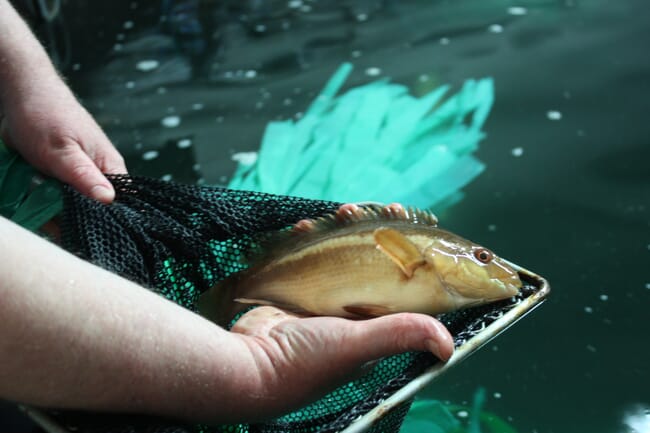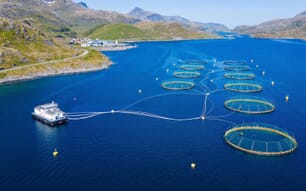Loch Duart has been using wild-caught ballan wrasse to help combat sea lice in their salmon pens since 2016, leading to the company reporting the lowest historical lice counts on all its marine sites last year.
However, concern over the sustainability of the wrasse fishery on the south coast of England, which has been the source of its cleanerfish, has prompted the company to act.
Loch Duart representatives met with Inshore Fisheries and Conservation Authority (IFCA) officials in December 2017. It was agreed that regulation and close monitoring of the fishery is required.

© Rob Fletcher
Lewis Bennett, the company’s cleanerfish coordinator, says: “When fishermen started catching wild wrasse for Loch Duart in 2016 the fishery was basically open to anyone. The risk of the fishery being overexploited was high, even in these wrasse-rich locations. Loch Duart found that the key regulatory and advisory bodies developed innovative management measures which were nothing short of outstanding.
“Loch Duart and the rest of the industry is making the transition from wild-caught wrasse to farmed wrasse. Meanwhile Loch Duart will continue to work closely with authorities including Southern IFCA, Cornwall IFCA, Natural England and Cefas, using their knowledge and experience to protect the fisheries and allow sustainable use of wild wrasse by aquaculture.”
Colin Trundle, principle scientific officer of Cornwall IFCA, said: “Cornwall IFCA officers have been very pleased that Loch Duart appears to be using the best available scientific evidence to ensure that they are sourcing cleanerfish responsibly. While their ongoing research has enabled them to minimise the numbers of fish they require from the wild capture fishery, they have also adopted fishery guidance set out by the south coast IFCAs where the fishery is carried out and have implemented voluntary measures based on the guidance that will contribute to the sustainability of the fishery.”
Looking ahead, Loch Duart now plans on achieving medicine-free sea lice treatment for an entire year and aims to further develop wrasse husbandry skills to help it achieve this.



